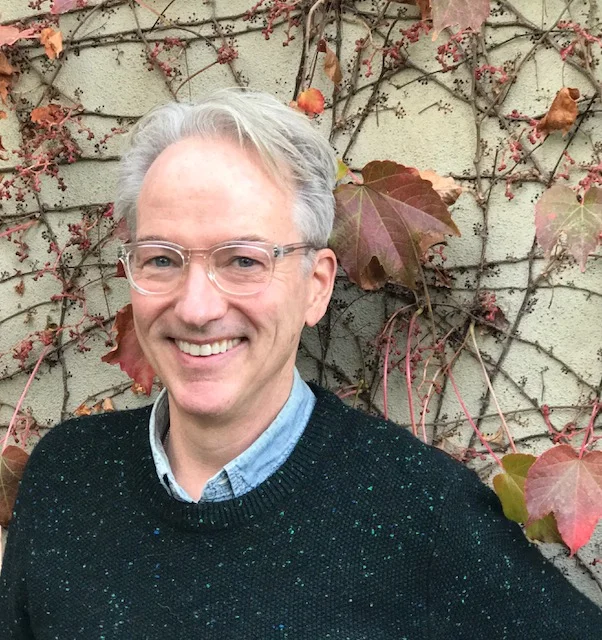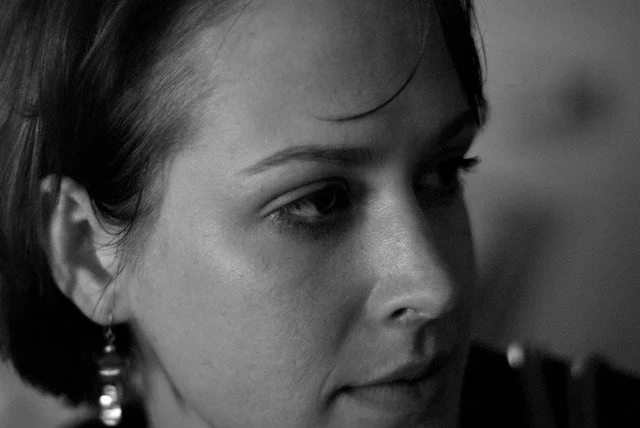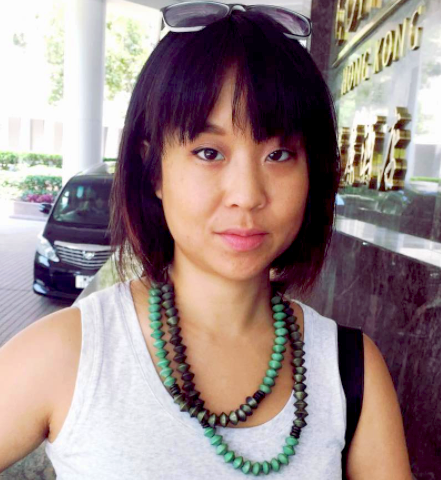If you’ve ever chatted with white folks who had names like Raincrow, Coyote, Yarrow, or Cloud; if you’ve ever enjoyed a lively chat about politics with a woman who had a long, white braid and a full goatee; if you’ve ever encountered a weathered old hippie in a stained jacket who had missing front teeth and a PhD from Yale; if you’ve ever had a friendly neighborhood housewife—the kind of woman who looks like she should be carrying a lemon cake to a church social—follow up an introduction by saying, “let me know if you ever need anything—flour… sugar…pot,” then maybe you’ve spent some time on the Mendocino coast.
I spend a chunk of my summers in that secluded coastal area of northern California famous for its rocky coastline, old-growth redwoods, and antiestablishment culture. More specifically, I spend my time in Elk, a seaside town with eighty-four full-time residents where my family and I are fondly but cautiously embraced as “vacationers.” The owner of the general store, who considers himself a refugee from LA, always says, “Welcome to reality,” and although I won’t say it’s more of a reality than LA is, I will say that it’s a very different reality.
It’s remote; no chain stores, no traffic signals, no doctors, no schools, no cell phone service—you get the picture. Locals chuckle at Patagonia- or The North Face-clad tourists walking erratically around town, holding out their iPhones like divining rods seeking reception.
All this remoteness means that folks are a bit more connected to each other than they typically are in more populated areas. They know each other, they depend on each other; they give you stuff, they borrow stuff. They have expectations.
Which leads to hitchhiking.
Try telling someone from the Westside of LA, where I live full-time, that you pick up hitchhikers, and he’ll look at you like you just confessed some dark, salacious peccadillo that sometimes needs satisfying.
You get a very different response in Mendocino, where the antiestablishment culture combined with a dearth of well-paying jobs means that a lot of folks need a lift.
The logging and fishing industries were each, in turn, exhausted, and eventually gave way to illegal “growing” as one of the more reliable sources of income. It’s a coin toss as to whether the legalization of marijuana will rescue or destroy the fragile economy. The result of all this economic volatility is that almost no one is complacent about his situation.
This insecurity helps to create an ethos that frowns upon anyone who thinks he or she’s too good to consider the collective needs of the community. One way this manifests itself is that people pick up hitchhikers—many of whom, by big city standards, look, well, a little sketchy. Still, in that particular culture, it’s not surprising when the scruffy guy holding out his thumb on the side of the road can easily discuss anything from Chinese philosophy to String Theory.
Other hitchhikers are more stereotypical—they look fried because they are fried.
* * *
I was about an hour inland last summer, heading from the coast to the San Francisco Bay Area to do some errands. The only way out is on a winding, hilly road through the redwoods and then the wine country of the Anderson Valley. It’s sweltering in the summer, and the sharp turns and rolling hills often make it a punishing ride for everyone but the driver. On this particular Saturday afternoon, it was full sun and 103 degrees when I rounded a corner and saw a man standing under an oak tree wearing a black T-shirt, baggy jeans, and a trucker’s hat—his thumb in the air. On impulse, I pulled over and immediately felt the same combination of trepidation, regret, and then altruism that I feel whenever I stop for a hitchhiker. I lowered the passenger-side window and a blast of heat wafted in that made my eyes squint.
He picked up a backpack that was smaller than what most grade-schoolers carry, and then he reached into the bushes and grabbed a leash tethering a five-month-old pit-bull-black-lab mix. They both ran toward the car.
“God bless you, man, thank you.” He didn’t seem that old, maybe in his mid-thirties, but he was missing his two front teeth. Meth addict, I thought until I realized the teeth weren’t rotted, but broken off.
This wasn’t one of the closet sophisticates; this was one of the fried folks.
“I’m sorry,” I told him, “I didn’t see the dog. I can’t do it. I have a dog that will piss all over if he smells another dog.” I wasn’t lying; our dog looks for reasons to pee in the wrong places.
“Please man, please. I started walkin’ from Boonville three hours ago, and no one has stopped. Please, please—I’ll carry him in my lap; he won’t even touch the car.”
Hard-ass that I am, I said, “Okay, get in.”
It took about eight seconds for me to recognize that this was going to be a difficult ride, but not for any dangerous reasons. The odor of someone who’d been walking in triple-digit heat for hours and likely hadn’t bathed for several days before that infiltrated the car in no time. His dog’s contributing stench brought it to a point of cruelty.
I wanted to roll down the windows—sacrifice the air conditioning for some of the stifling country air, but it would have been so obvious and so rude that I held back—he was polite; I wanted to reciprocate.
He told me he was heading to Las Vegas, where he was born, to replace his stolen birth certificate, which was one of the things he needed before he could replace his also-stolen license. Just as soon as he had that birth certificate, he was going to turn around and come back to California because Vegas was a very scary place, even though it was where he grew up. He’d seen some bad things. The problem was that he had absolutely no idea how to get to Las Vegas from Northern California, but his friends told him the 101 South was a good start, which I confirmed was probably right.
He said that the dog had been “rescued from some homeless people who abused it” (I didn’t ask for details), and he vowed that he’d go hungry himself before he’d let it miss a meal. The conversation turned to the town of Lakeport, which he described as rough and unwelcoming, with lots of dangerous homeless panhandlers.
So, I thought, are the stories of nasty homeless people his way of telling me he’s not homeless, or his way of telling me that he’s in the constant company of the homeless?
We sat in silence for a few minutes. I drove; he cuddled his dog, massaging its paws.
As usual, ten minutes in, I knew that, in general, there’s little reason to fear hitchhikers.
“I’m so happy to be in a car right now.”
“The heat’s brutal.”
“That, too. I spent the night sleepin’ in the redwoods, or tryin’ to sleep, in the redwoods, but somethin’ was walkin’ around us all night. Somethin’ big—I heard sticks break where it walked. I saw pretty good ’cause of the full moon, but I didn’t see what it was.“
“Geez,” I said, “sounds scary.”
I thought of myself the night before, looking at the ocean, holding a glass of wine, gazing at the full moon, feeling that all was right with the world, but dreading my eventual return to the reality of relentless work and schedules and responsibilities. I thought of him, without so much as a sleeping bag.
“Well, I been homeless since I was eleven, so I’m used to it.”
There it was; he opened the door to discuss more than the heat or the birth certificate or the dog.
“Whoa, eleven? How’d that happen?”
“Well, my mom was a drug addict. She didn’t come home for two weeks, so I just left.”
“Geez… ”
“I never knew my dad. The first time I ever saw him was when I was eighteen and he was in his coffin, so… ”
I refused to offer up a third “geez,” so we rode in silence for a minute.
Maybe he was working me, but I rationalized that this guy had been so vulnerable for so long that it didn’t matter what he shared or with whom. He had his worldly belongings in a twelve-by-eighteen-inch satchel, his only family was a puppy, he slept in the woods, and he was missing his front teeth. How much more vulnerable can someone be to the rejection or judgment or scorn of a stranger?
“He was an addict. He was living with my grandma, his mother, and he went to California to buy drugs to sell, but when he got back to Vegas with them, he OD’d in her bathroom, so… ”
“Did you grow up hearing stories about him?”
“My mother never said a word about him until he died. And then nothin’ nice.”
He said he didn’t care what anyone said or thought about his father; he would have liked to know him and felt no anger or resentment toward him.
“Eleven-nineteen-seventy-two. I never forget those numbers. Eleven-nineteen-seventy-one.”
“What’s that?” I asked, my pulse rising at the first two numbers.
“His birthday. Eleven-nineteen-seventy-one. It might be seventy-two, I’m not sure, but I know it’s eleven-nineteen.”
November nineteenth. My birthday. I said nothing.
“Some things are hard for me to remember. I have a soft spot on my head, see?”
He took off his hat and tilted his head toward me, running his fingers across his skull, from ear to ear. His hair was only about a half an inch long and flattened by his hat. There was a visible indentation along the crown of his skull.
“You know how babies have soft spots on their heads? I didn’t have one, so they had to do surgery to cut a hole in my head when I was three, and now my skull has a big gap in it, but I’ve never had a headache in my life. After that surgery, my grandmother took care of me for two years. I’m hoping to find her when I get to Vegas. I stayed with her for a while when I was about fourteen, but that’s six years ago, so…”
“So you’re twenty?” Oh my God, I thought, he’s only twenty?
“Yup, I turned twenty—two months ago. She might not want to see me, ’cause I ended up gettin’ into trouble when I was stayin’ with her. Spent four years in juvy, but it was good; it straightened me out. Well, juvy didn’t straighten me out—I made some dangerous friends in juvy, and two days after I got out and I was stayin’ with her, I stole a car, but that’s when I ended up in a youth camp, and then from there in a really good rehab program for kids with no family—I spent four years there. Those were good people and they took care of me. I worked there doin’ maintenance even after I finished my sentence. ’Cause of those people, I’m not dead today.”
“That’s great,” I told him.
Homeless, penniless, sleeping in the woods, and a soft spot on his head—and he still felt lucky.
“Hey, man, I’m sorry I smell. I know it’s bad.”
“Don’t worry about it.”
The truth was that the smell remained so potent that I was beginning to feel nauseous. The smellier truth is that I was getting on the 101 South, but my privileged, spoiled nose and I couldn’t take two more hours of it. I lied and told him I could drop him off at the onramp, which was right around the corner from my fake destination.
As we neared the freeway, I had to say something.
“Did you say your dad’s birthday was November nineteenth?”
“Yeah, eleventh month—that’s November, right?”
“Right.”
“Eleventh month, nineteenth day. So that’s November nineteenth.”
“I gotta tell you, that’s my birthday.”
At that point, he put his hands on the sides of his face and folded slightly forward in his seat. “Are you serious? I can’t believe this. Something’s going on.”
“Crazy, huh?”
He sat up again, pulled off his hat and swept his hand across his head.
“In Lakeport, I gave a homeless guy the only shirt I had because he was sick, and for three days, I didn’t have a shirt to wear. Then I saw this lady in her yard, and I asked her if she had an old T-shirt I could have, and she went in her house and came out with this.”
He pivoted in his seat and stretched out the front of his T-shirt for me to see “Las Vegas” splashed across the front of it.
“First that lady gives me this shirt that says ‘Las Vegas,’ and then you pick me up and your birthday is November nineteenth. It means somethin’, but I don’t know what.”
“Well, here’s the freeway.”
I turned onto the gravel shoulder.
“I really appreciate the ride.”
I reached into my wallet and pulled out a ten and a five. “Here, have lunch on me.”
“God bless you, man. Thank you so much. God bless you. God bless you.” It was guilt money. His effusive thanks made me feel guiltier. “I can’t believe that someone who has the same birthday as him picked me up.”
“Crazy,” I said.
“God bless you, man.” He got out of the car, gently put his dog down, and grabbed his bag out of the back seat. Then he paused before shutting the door.
“You know, I’d like to be married. I’d like to worry about payin’ the bills one day—that sounds good to me.”
“Then it’s going to happen for you, right? It will. Keep the faith.”
Twenty years old, but I could see that it probably wasn’t going to happen for him, and if it did, it probably wouldn’t be for long.
“God bless you, man.”
You better ask God to forgive me, too, I thought.
I was so relieved to roll down the windows and take a deep inhalation through my nose, but whether it was real or imagined, the smell stayed with me for the next hundred miles.
* * *
Hours later, my time with the hitchhiker resonated with me, needled me. Why didn’t I give him the two twenties I had in my wallet? Why didn’t I go into the trunk and pull some of the extra clothes from my own backpack to give him? For that matter, why didn’t I pay sixty bucks and check him into one of the cheap hotels near the freeway for the night? He could have taken a shower and slept in peace with his dog, rested up before resuming his daunting quest to reach Las Vegas without money or directions.
But, I reasoned, I’d have had to use a credit card, and what if he trashed the room? Stole something? Overdosed? If I lived in Mendocino County, it would be different, but imagine my having to explain to my LA friends that I needed to talk to the police about the homeless guy whose hotel I paid for and who was found dead the next morning…nice.
We never exchanged names—perhaps because names were a superficial detail after what he’d told me about his life and my birthday. There was a connection that seemed like more than coincidence—perhaps because he had no one and nothing—and only hopeful notions about a father he never knew.
As I headed south, I thought of that father, first condemning him, then empathizing with him. Did he think the big drug haul was the best chance he had for stability? Did he ever think about that kid? What went through his head as he lay on his mother’s bathroom floor, the last synapses firing through his body? Did he know he’d soon be gone forever from someone who would have accepted him—in any state?
That father; our birthday.
I tried to convince myself that I did what I could for that hour’s ride on a hot summer day, and that any of the locals would have made the same choices I did.
But I know.
I’m really just a vacationer.
John Murray was born and raised in New England and now lives in Los Angeles full time, although he spends part of the year in Northern California. As an associate professor in the undergraduate writing program at the University of Southern California, he teaches academic writing with an emphasis on community collaboration and social justice issues. Murray also co-teaches a creative writing workshop for recently paroled prisoners who were serving life sentences.


